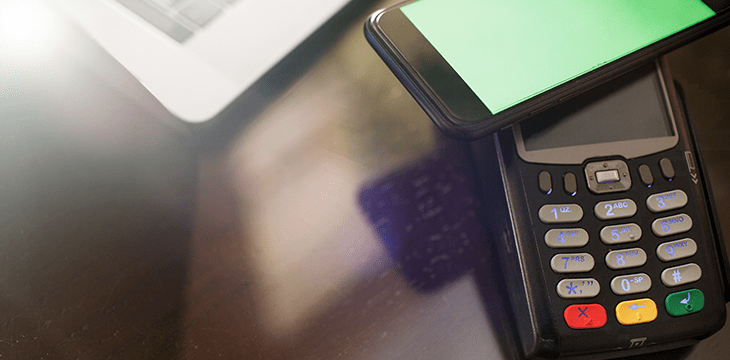|
Getting your Trinity Audio player ready...
|
Something that I’m really, really excited about and have been for a long time, the ability to make microtransactions and nanotransactions and all of the possibilities and business models and categories and products and apps and markets that this opens up in the world.
An entire sector of the economy, I think, that was never possible before.
And this thrills me.
-Isaac Morehouse, Founder, Crash.co
There are so many things I love about this quote of Morehouse’s, the excitement it emanates, the possibilities it suggests, even just his tone of voice when he delivers this quote, it is so contagious. I want more of what he is having.
In this post we will cover what Morehouse reveals in the first episode of his “Tiny Payments are a Big Deal” series on YouTube, the source of the quote above and an area that I believe the gaming industry in particular can benefit from.
So many people are stuck on digital currency price, trading crypto, trading NFTs, ICOs and other buzzwords that dominate the media, both social and mainstream, yet the ability to do tiny payments is way more than a bubble on the brink of bursting.
I urge gaming industry professionals to take notice of this series and to start thinking about ways to integrate tiny payments into their businesses, but first let’s start with the basics.
What do we mean by tiny payments?
Morehouse is thrilled by the possibilities “tiny payments” bring to the digital economy, but what does he mean by tiny payments? Tiny payments include both “micropayments” and “nanopayments,” the former representing any amount under a dollar and the later representing any amount under a penny.
Micropayments are possible in the physical space, but they and certainly nanopayments were not possible in the digital space until Bitcoin was created.
“Bitcoin made instant, global micropayments with no delay, no settlement or anything like that, possible,” Morehouse stated.
Why is no one else excited about this?
While the creation of Bitcoin made tiny digital payments possible, it feels like very few people are excited about this amazing capability and little innovation has happened with tiny payments since Bitcoin’s launch in 2009. Why is this?
Morehouse suggests the notion of doing micropayments may have been “cursed” by the success of digital currency as a speculative investment and dwarfed by the hype. The crypto success has blinded everyone and/or taken away the incentive to innovate with micropayment functionality and other practical use cases that you can actually build on. But maybe this is a good thing.
Gap in the market
“I think there is an incredible gap in the market right now,” Morehouse revealed.
“Because all the money to be made on speculating on coins, forking new coins, creating new coins, creating new tokens, creating NFTs, doing ICOs, doing DeFi staking—which is all essentially just complicated ways to speculate on a token—the fact that you can make so much money there and has drawn all that attention, has left under the radar the power, the business applications of micropayments and nanopayments,” he added.
The obsession with speculation and trading has left a huge opportunity for entrepreneurs and forward thinkers to move and build while no one else is looking, re-generating the way we interact with each other digitally.
Why are tiny payments so cool?
Morehouse cites five business models that are opened up by tiny payments, each revolutionizing the way we are interacting online today.
1. Metered payments
Think of how a gas pump works, or anything streaming online. With tiny payments, we can pay in real time per “x” of anything—per page, per minute, per gallon—the payments can be streamed straight from your wallet. No batch invoicing, no accounting, no bookkeeping.
2. Split payments
When someone buys a good or service, the payment can be sent out to a few, dozens or even hundreds of relevant parties simultaneously and in real time. This type of functionality opens up amazing biz models, for example peer-to-peer referrals as TonicPow and Haste Arcade have put into practice, rev shares, auto payroll, even paying people that work together on projects.
3. Tradable revenue shares
Revenue shares can be tokenized, meaning the rev share percentage gets programmed into a token and this token is tradable. If you need cash now, you could trade the tokenized rev stream to someone else who believes in the product you have a share of.
4. Monetized data
You can choose what data of yours—browsing date, for example—you want others to see, and you can charge for it. Tiny payments can be made to “unlock” data on blockchains or even other databases.
5. Nano paywalls
Instead of being prompted for a monthly membership when trying to view a single article, publishers could charge per article. This type of functionality also serves as a spam and bot killer because it would be too expensive for farms to keep paying for access.
Closing thoughts
Think of a podcaster, just starting out. They could charge a tiny amount per video or charge an even smaller amount per minute of viewing. They could split these payments to pay themselves plus anyone else who helped them put the podcast together, in real time. If they need funding up front, they could sell tokens that represent a percentage of the show’s revenue.
This is just one example of the endless opportunities that tiny payments can enable.
“Think about all the things that you do that are valuable. Your time. Your energy. Things you’ve built. And the ability to get real time streams of those in perpetuity and split those streams with others and trade those streams to other people or sell them to other people. I get super excited about that,” Morehouse concluded.

 02-28-2026
02-28-2026 




